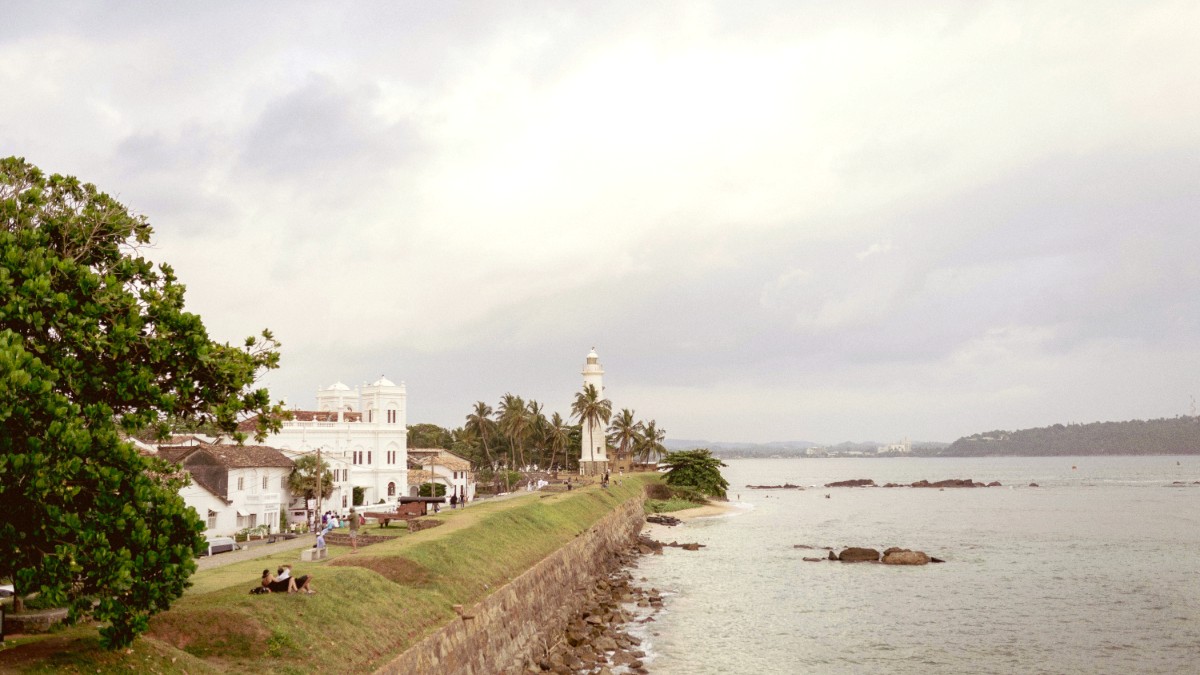
The South, Sri Lanka
Temperatures in Galle remain relatively consistent, averaging between 26°C and 30°C (79°F and 86°F). Humidity levels are consistently high, typically 70% to 90%, making the air feel heavy.
Galle’s precipitation patterns are dominated by two main monsoon seasons affecting Sri Lanka's southwest coast: Southwest Monsoon (May-September) and Northeast Monsoon (October-January, less impact on southwest).
Monsoon rains, while bringing lush greenery, can cause localized flooding. Tropical depressions can bring heavy winds and intense rain during inter-monsoon periods (April/May and October/November).
Temperatures remain consistently warm. Extreme heat often combines with high humidity. Staying hydrated and seeking shade is important.
December to March
Driest, sunniest weather. Ideal for beach activities, whale watching. Exploration comfortable.
Higher prices for accommodation, flights. More crowds. Booking in advance a suggestion.
April, November
Fewer crowds, often lower prices. Pleasant weather. April has New Year festivities.
April very hot, humid. November still some rain. Sea conditions rough early November.
May to October
Lowest prices. Few tourists. Lush landscape. Stronger waves for surfers.
Frequent heavy rainfall. Rough seas, water activities unsafe. Beach relaxation not ideal.
Swimming, snorkeling, diving: December to March for best conditions, calm seas, abundant sunshine.
Optimal season for spotting blue whales off Mirissa runs from November to April.
South coast waves year-round. May-October (low season) offers consistent waves for beginners/intermediates in areas south of Galle.
Explore year-round. Dry season walks more pleasant. Mornings and late afternoons cooler.
Midday heat can be intense in April. Stay hydrated and seek shade.
Sea conditions might remain slightly rough at the start of November.
Shoulder/Low season travel brings lower prices for hotels/tours.
Most nationalities require an Electronic Travel Authorization (ETA) to enter Sri Lanka. This system simplifies the visa process for short visits.
Apply for an ETA online before arrival via eta.gov.lk. Processing usually quick. Pre-application online strongly suggested to avoid delays.
Possess the correct documentation before travel.
The official currency of Sri Lanka is the Sri Lankan Rupee (LKR), often abbreviated as Rs. Exchange rates fluctuate. Check current rates.
Your well-being is a priority when traveling. This section outlines common concerns and their management.
Daily expenses vary based on travel preferences. Here a general breakdown for budgeting:
Budget traveler daily costs (USD 25-45). Mid-range traveler daily costs (USD 50-100). Luxury traveler daily costs (USD 150+).
Consult a healthcare professional ideally 4-6 weeks before your trip. Yellow Fever Certificate required if from risk countries. Routine vaccinations (MMR, DTaP, Polio) up to date. Hepatitis A/B, Typhoid, Rabies, Japanese Encephalitis sometimes suggested.
Yellow Fever certificate a must if from affected regions.
Check WHO list of endemic countries for Yellow Fever.
Dengue Fever is mosquito-borne. Use Insect repellent, wear long sleeves/pants, use nets. Traveler's Diarrhea common; "Boil it, cook it, peel it, or forget it." Wash hands frequently. Sunburn/Heatstroke: Stay hydrated, wear Hat, Reef-safe sunscreen.
Vigilant repellent use a must in Galle's humid climate.
Avoid tap water and ice from tap water.
Galle generally a safe city for tourists, especially within Galle Fort. Petty crime possible in crowded areas outside Fort. Beware of touts and scams; agree on prices beforehand. Solo female travelers caution at night outside well-lit areas.
Police: 119, Ambulance/Fire: 110.
Tsunami risk rare but present; move to higher ground if warning signs.
| Category | Details | Tips |
|---|---|---|
| Hospitals | Karapitiya Teaching Hospital (public), Ruhunu Hospital (private). | Private preferred by tourists for quicker service. |
| Clinics/Pharmacies | Numerous in city center for OTC meds. | Carry enough prescription meds in original packaging. |
| Travel Insurance | Strongly suggested for all travelers. | Coverage for medical emergencies, trip cancellation, lost luggage. Check activity coverage. |